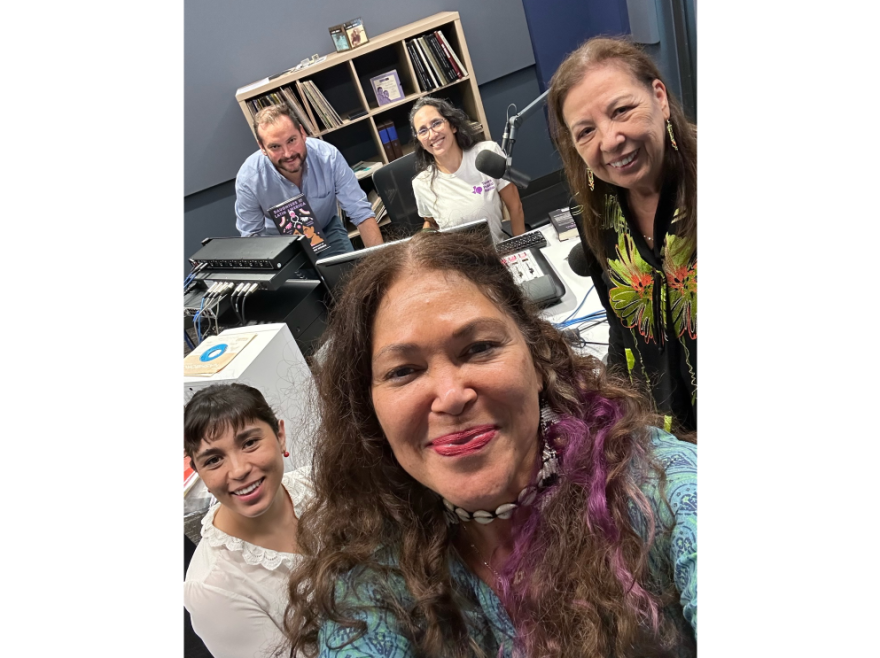From 17th century poet Sor Juana Inés de la Cruz to Mazatec poet and shaman María Sabina, the voices of Latin American ancestors often get left out of the literary canon.
Daughters of Latin America: An International Anthology of Writing by Latine Women honors a long history of storytellers and traditions.
The anthology compiles a vast collection of poems, plays, chants and songs that span generations. Contributors include U.S. Poet Laureate Ada Limón, San Antonio writer Sandra Cisneros, and many others.
Some women whose works are included died because of their activist writings.
The expansive collection of 140 works was edited by Sandra Guzmán, an indigenous storyteller, writer, and documentary filmmaker.

Guzmán discussed the inspiration behind gathering so many voices into one volume.
“We come from gorgeous oral literary traditions, oral literature. It is exquisite and brilliant,” she said. “I felt it was really important to honor as far back as I could.”
Writer and poet Norma Elia Cantú, a Murchison Professor of the Humanities at Trinity University, and writer Natalia Trigo both contributed to the anthology.
Trigo, an assistant professor of Spanish at the University of Texas at Arlington, said she was honored to be part of a collection that highlights so many diverse voices.
“We’re not all taking about the same thing and that’s what so amazing about it,” she said. “That’s part of the diversity, the lens that we’re looking through, because we’re all at different stages of our careers, our lives, our writing journeys, and our womanhood.”
Listen to the second part of the conversation about the anthology on Oct. 20.






